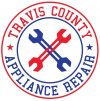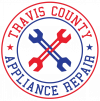Fixing Washing Machine Squeaking: Expert Tips & Tricks
Diagnosing the Issue: Annoying Squeaking Sounds
Washing machine Squeaking sounds are annoying and can really damage your washing machine sometimes. Squeaking sounds can have different reasons, and by utilizing some tips, you can diagnose the problem or even fix the source of the problem yourself.
Understanding Washing Machine Squeaking Sounds
Worn Out or Loose Drive Belt
The problem can be caused by a loose or worn-out drive belt. This belt allows rotation by linking the motor and drum. It can weaken with time and make squeaky noises.
Uneven Load Arrangement
If the laundry load in the washing machine isn’t evenly spread out, it can lead to significant vibrations during the spin cycle. These vibrations may result in squeaky noises as components rub against each other or the machine’s casing.
Unusual Objects in the Drum
Coins, buttons and small clothing items might unintentionally fall into the washing machine drum; this is most likely to happen in pockets or in between layers of clothes. These items could get stuck between the housing and the drum when it spins, creating friction and squeaking noises.
Displaced Washing Machine Drum
If the drum within your washing machine is not correctly aligned, it can generate friction against adjacent components, resulting in squeaking noises that can disrupt the machine’s operation.
Motor problems
The motor is super important in a washing machine. It makes things like the agitator and drum move during cycles. If the motor has problems like worn-out brushes or damage, it might start squeaking. This could be because there’s more friction inside the motor or it’s struggling to work with a heavy load. These issues can get worse over time, so you might need to fix or replace the motor to stop the squeaking.
Not Having Enough Lubrication
For a washing machine to work smoothly and have less friction between parts, good lubrication is essential. Squeaking noises can be produced when bearings, pulleys, or motor shafts rub against one another due to a lack of proper lubrication. Over time, the parts may sustain damage from this friction.
Squeaking sound Fixing Solutions
Worn Out or Loose Drive Belt Squeaking Sound Solution
To fix a squeaking sound from a washing machine caused by a worn-out or loose drive belt, first, ensure the machine is unplugged for safety. Access the belt by removing the appropriate panel and inspect it for wear or looseness. Tighten or replace the belt as needed following manufacturer instructions. Once done, reassemble the machine, plug it back in, and test it to ensure the noise is gone.
Uneven Load Arrangement Squeaking Sound Solution
The solution for a squeaking sound caused by uneven load arrangement in a washing machine involves redistributing the laundry load to ensure it is evenly spread out inside the drum. This can help minimize vibrations during the spin cycle, reducing the friction between components and eliminating the squeaking noise. Additionally, avoiding overloading the washing machine in the future can help prevent this issue from recurring.
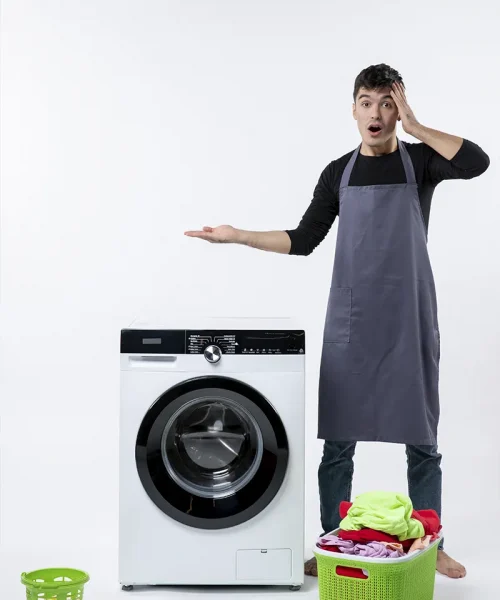
Unusual Objects in the Drum Squeaking Sound Solution
In order to fix a squeaking sound caused by unusual objects in the drum of your washing machine, you can start by unplugging the machine for safety. Then, carefully inspect the drum for any foreign objects, such as coins or buttons. Remove any items you find using your hands or pliers, checking thoroughly to ensure nothing remains. Afterward, run a test cycle to confirm the noise has stopped. To prevent future occurrences, you can also establish an empty-pocket policy in your house before beginning to do laundry.
Displaced Washing Machine Drum Squeaking Sound Solution
Fixing a squeaking sound caused by a displaced washing machine drum involves realigning the drum to its proper position. This typically entails accessing the drum assembly, identifying the misalignment, and adjusting it as necessary. Once the drum is properly aligned, running a test cycle can confirm that the squeaking noise has been resolved.
Additional Tips to Increase the LifeSpan of your Washing Machine
Regular Cleaning
You need to lean the drum, detergent dispenser, and filter regularly to prevent buildup of dirt, lint, and detergent residue. This helps maintain optimal performance and prevents unpleasant noise and odors.
Utilizing the Proper Detergent
Use only the recommended type and amount of detergent for your washing machine. Using too much detergent can create excessive suds, leading to buildup and potential damage to the machine.
Pay Special Attention to The Leveling
In order to prevent annoying noises and unwanted vibration make sure that the washing machine is level and stable on the floor. You can adjust the leveling feet to achieve proper balance.
Consult with Your Friendly Neighborhood Appliance Repair Technicians
When it comes to addressing issues with your home appliances, such as a squeaking washing machine, trust the expertise of Travis County Home Appliance Repair, your local appliance repair company serving Austin, TX, and surrounding areas. Our skilled appliance technicians specialize in washing machine repair services, ensuring efficient and reliable solutions for all your appliance needs. Call us to have an accurate issue diagnosis and guaranteed repairing process.
Frequently Asked Question
Squeaking noises in washing machines can have different reasons like a worn-out or loose drive belt, uneven load arrangement, presence of unusual objects in the drum, displacement of the washing machine drum, motor problems, and lack of lubrication.
You can avoid annoying noises and increase the lifespan of your washing machine by establishing a regular cleaning schedule, utilizing the proper detergent, paying attention to leveling, and consulting with professional appliance repair technicians to prevent squeaking noises and extend the lifespan of your washing machine.
If you don’t pay attention to squeaking noises in your washing machine, it can cause more problems inside, like damaging the motor, drum, or bearings. This might mean you have to spend a lot to fix it or it could stop working before it should.
amazing things you didn't know about Appliance Repair
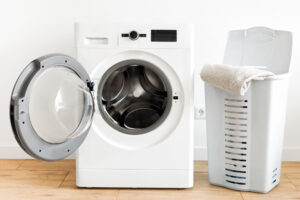
5 Best Washing Machines of 2024 in the USA
5 Best Washing Machines of 2024 in the USA How a Quality Washing Machine Can Be Beneficial? Selecting the best washing machine is crucial because it can offer various benefits, such as Being Cost Effective
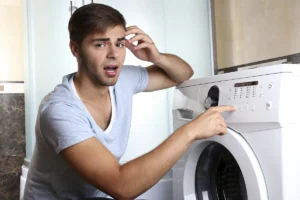
Washing Machine Squeaking Fix
Fixing Washing Machine Squeaking: Expert Tips & Tricks Diagnosing the Issue: Annoying Squeaking Sounds Washing machine Squeaking sounds are annoying and can really damage your washing machine sometimes. Squeaking sounds can have different reasons, and
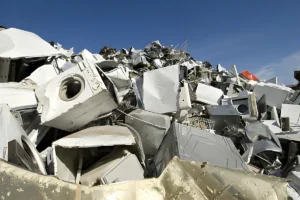
Beyond the Throwaway Culture: Eco-Friendly Appliance Repair
Eco-Friendly Appliance Repair: Beyond the Throwaway Culture Why is Repairing Home Appliances a Smart Choice for my own financial circumstances? To begin with, repairing home appliances can be financially beneficial for several reasons. Firstly, it’s
